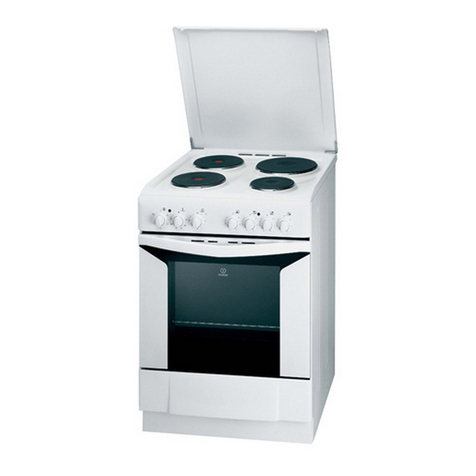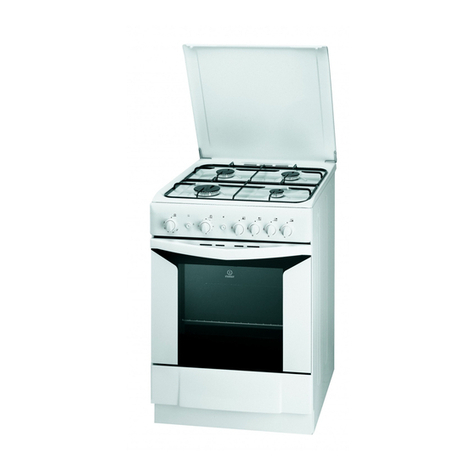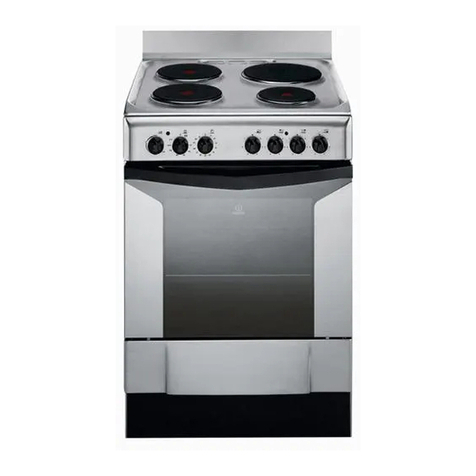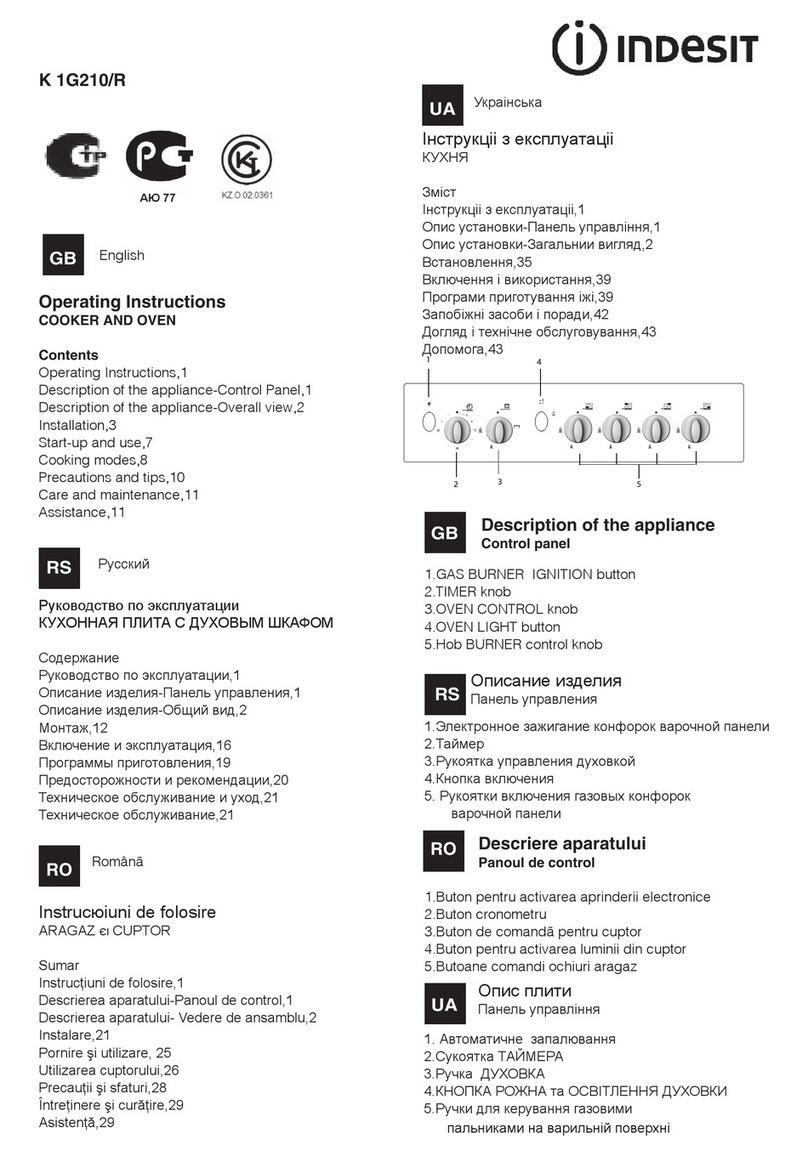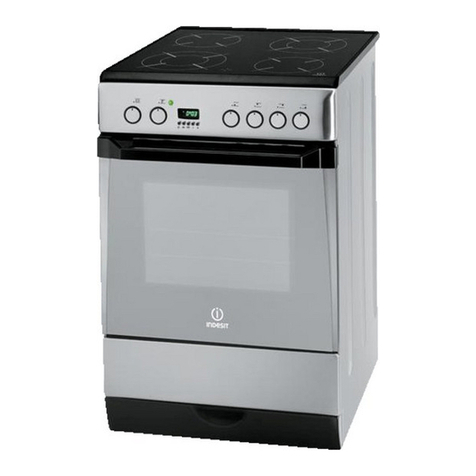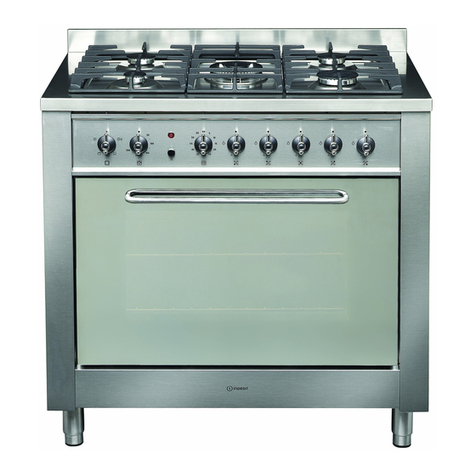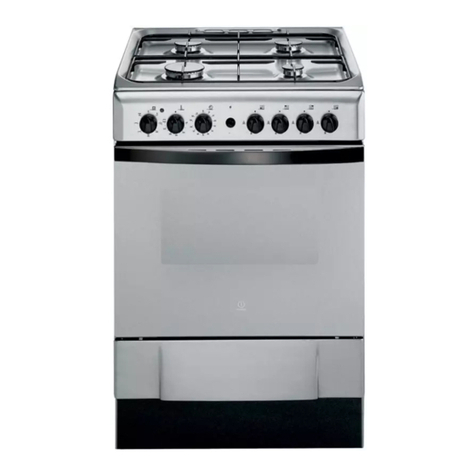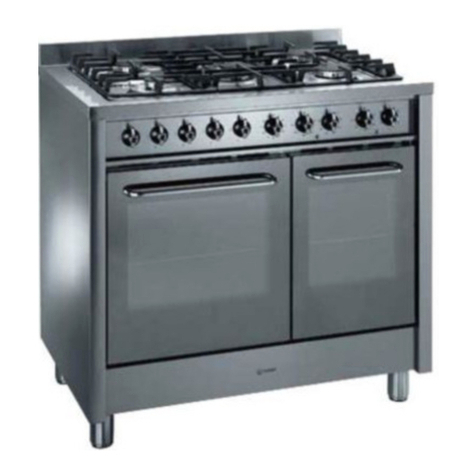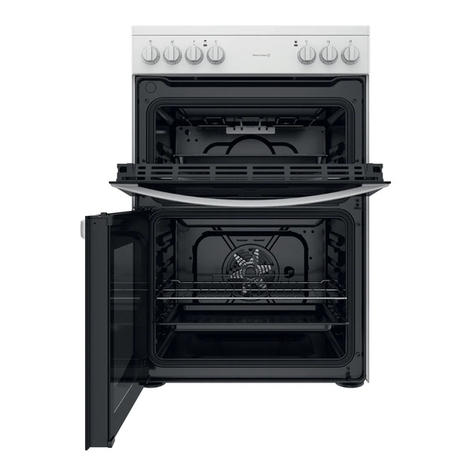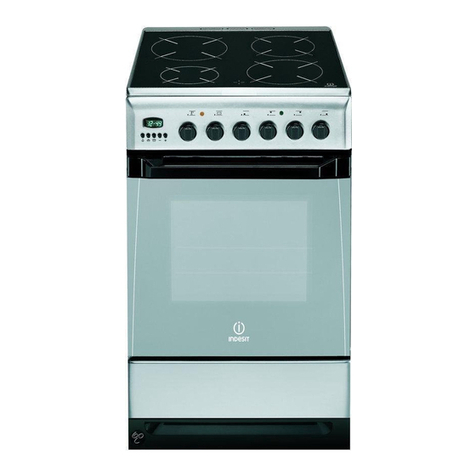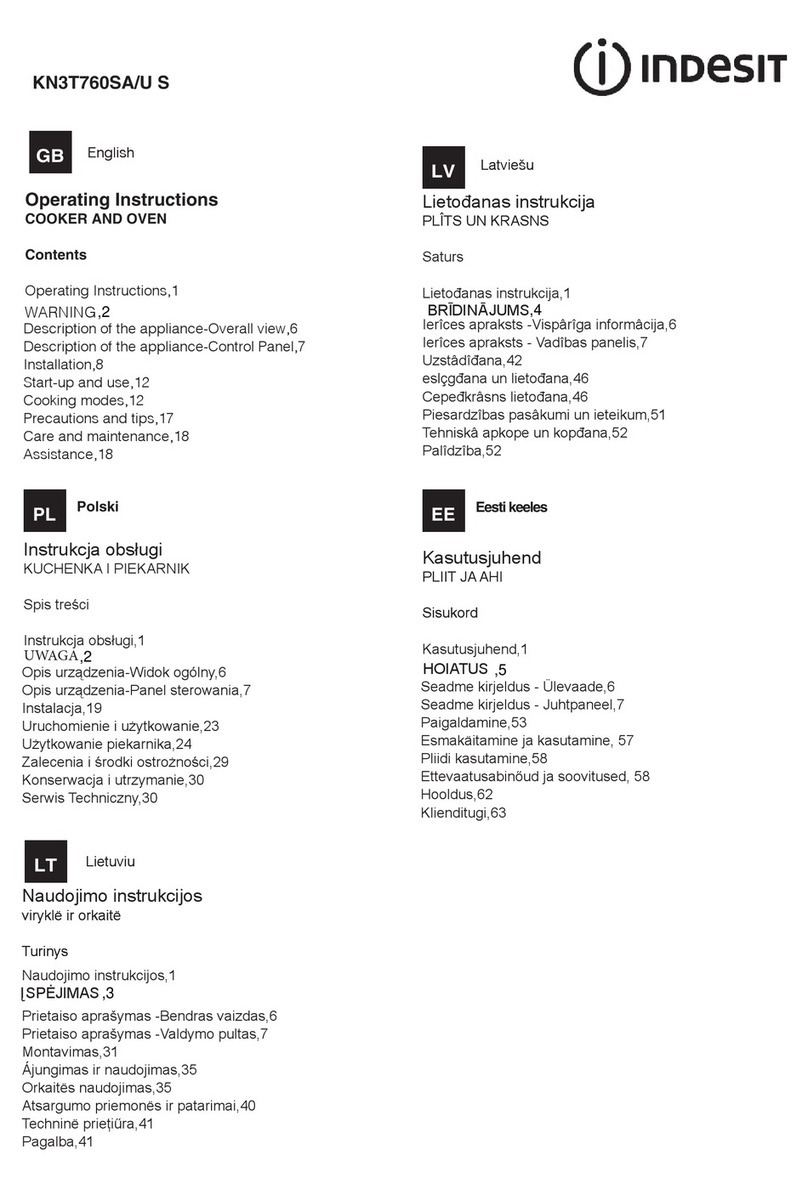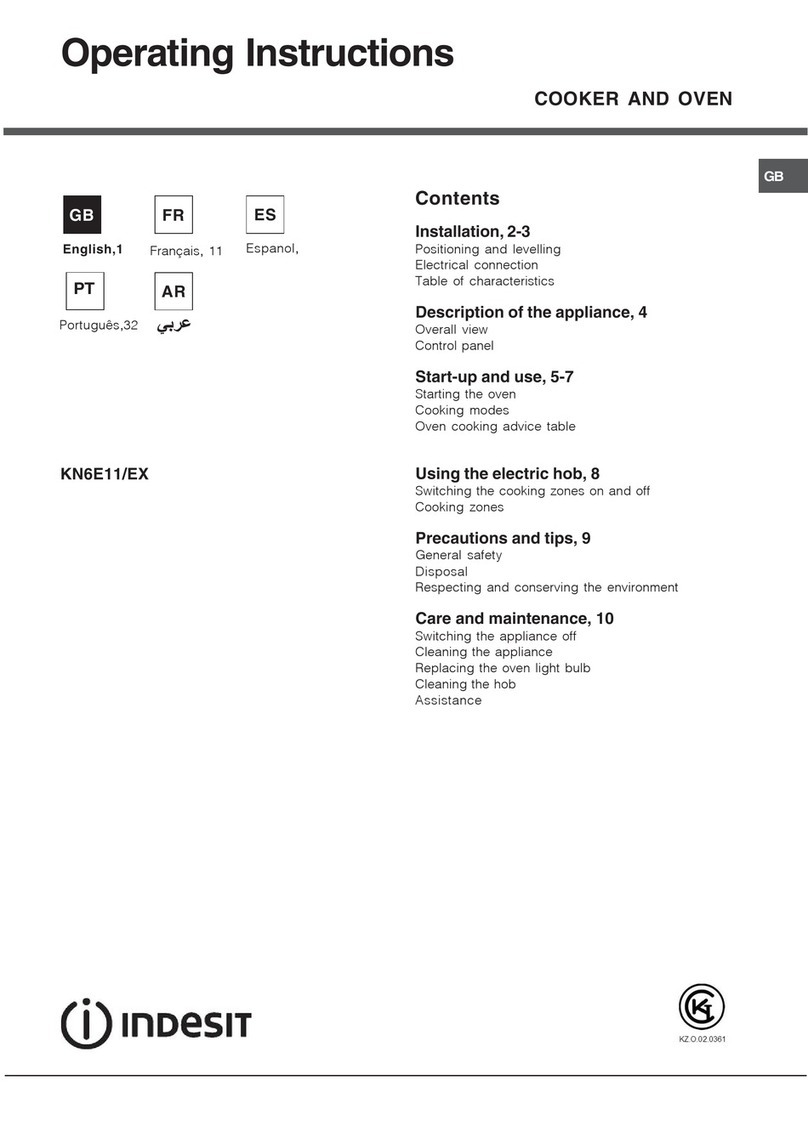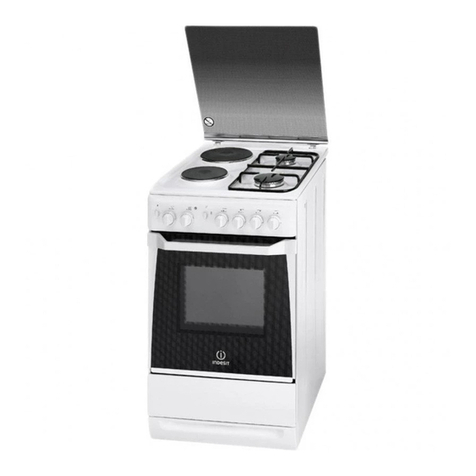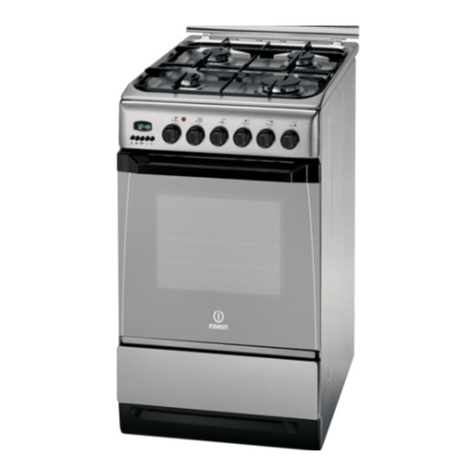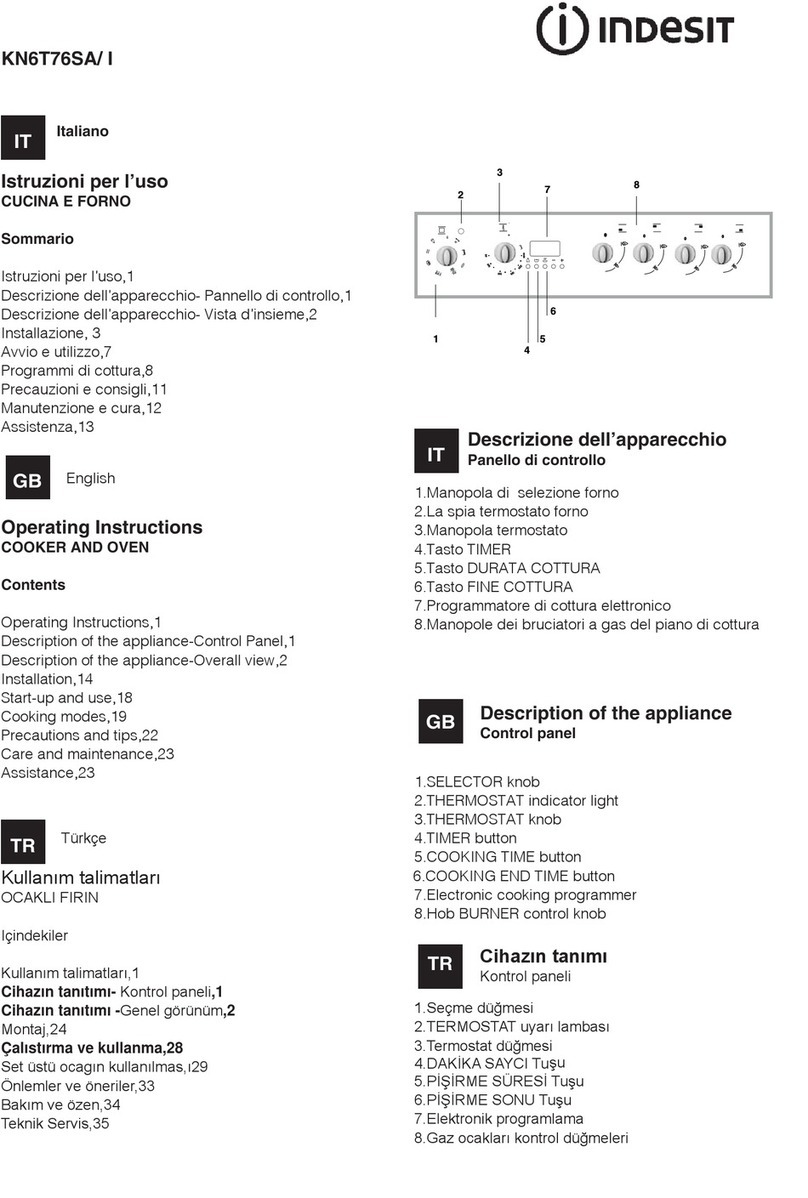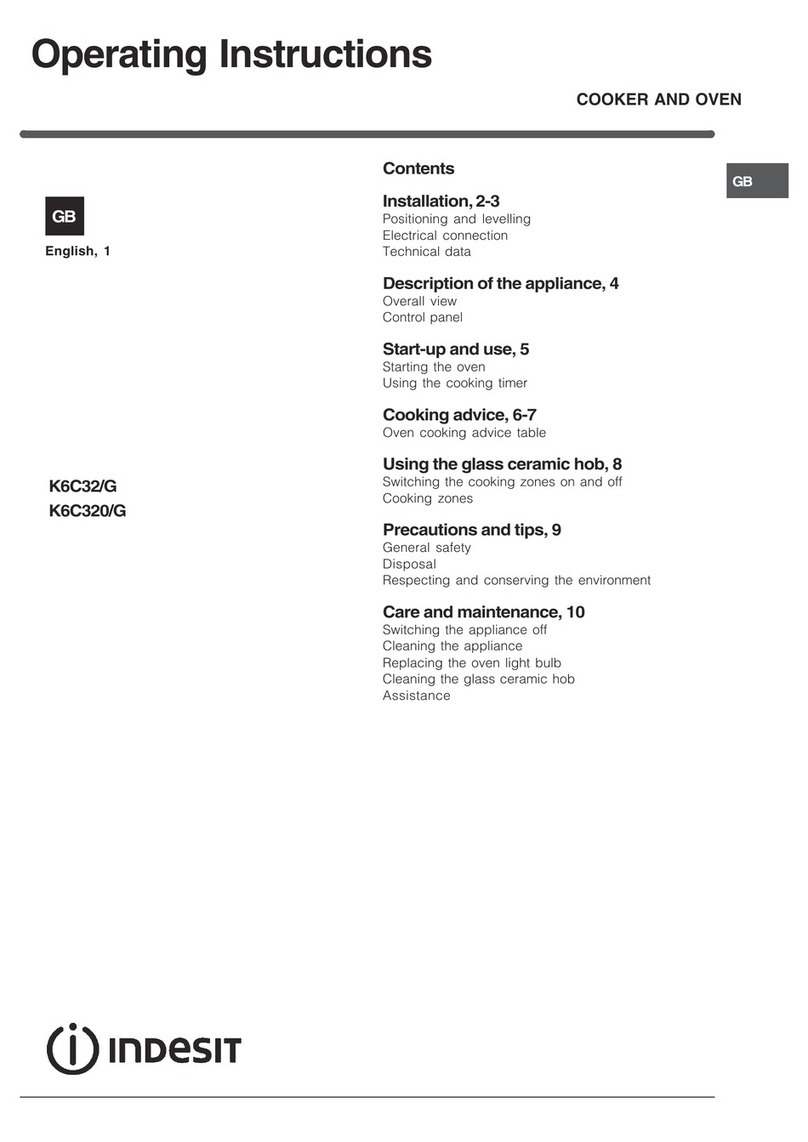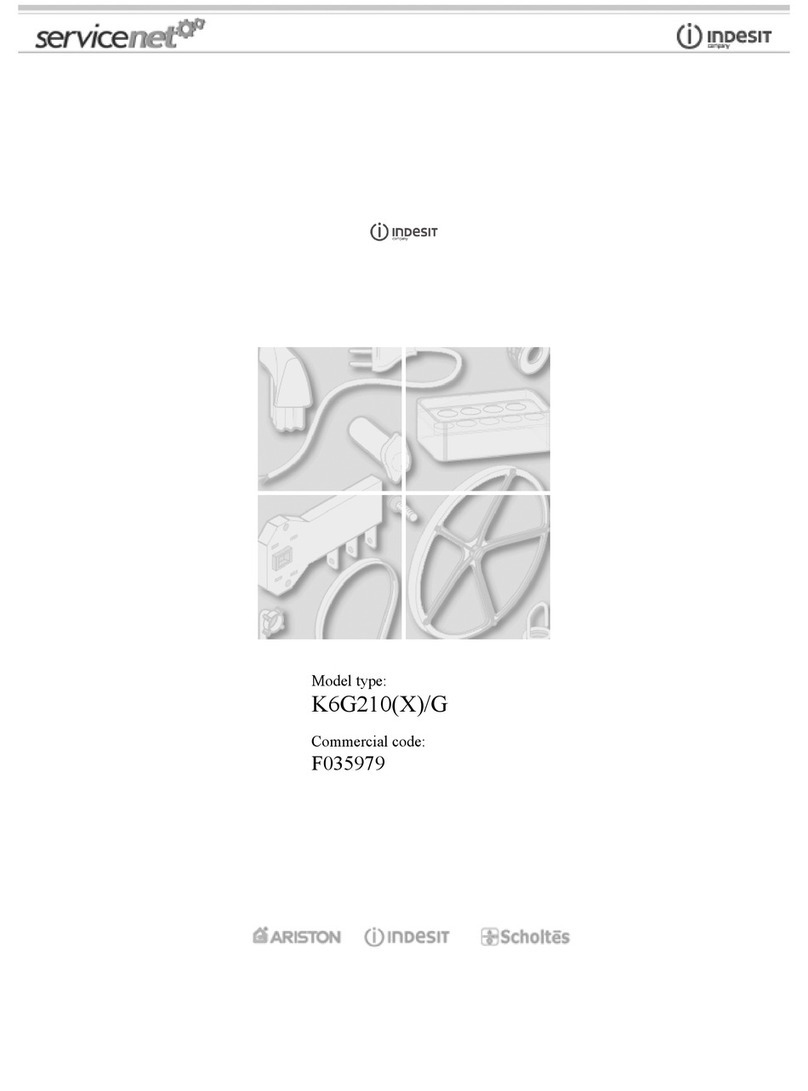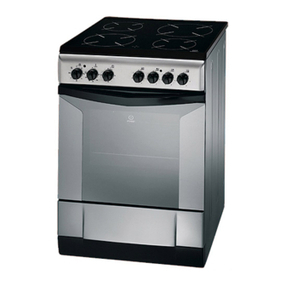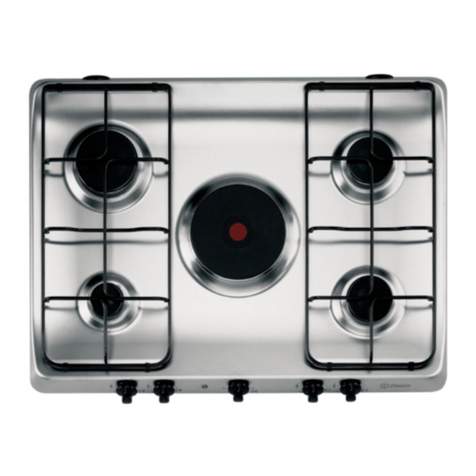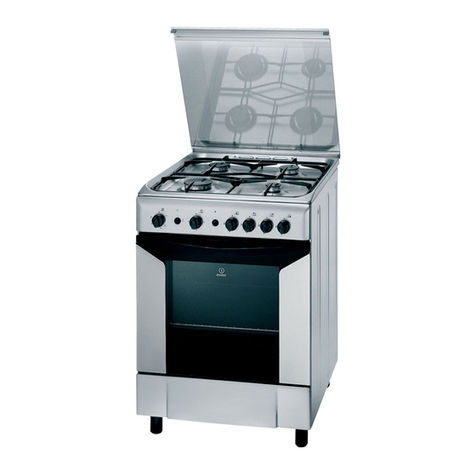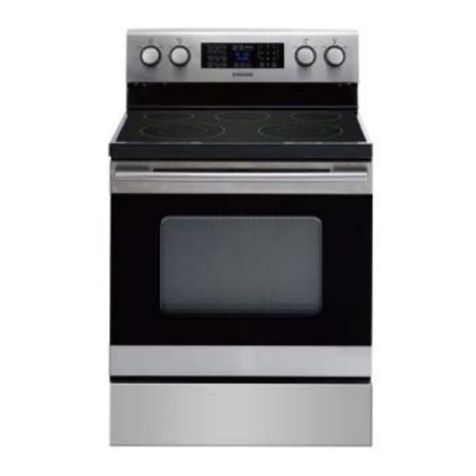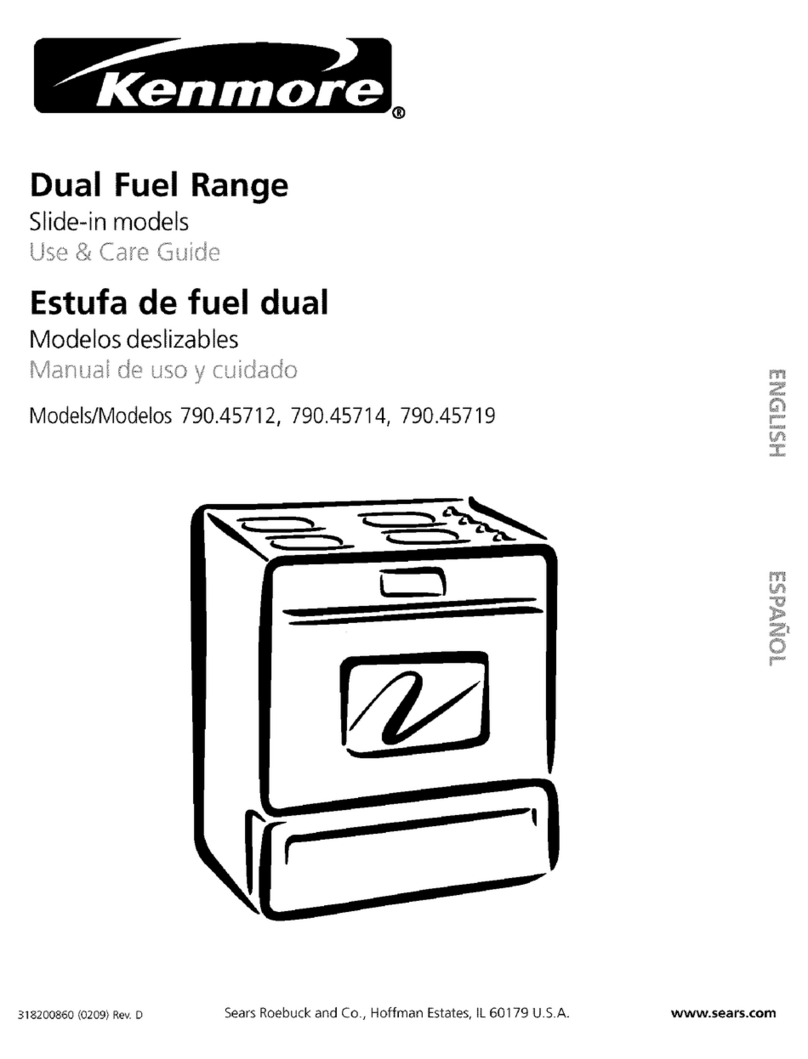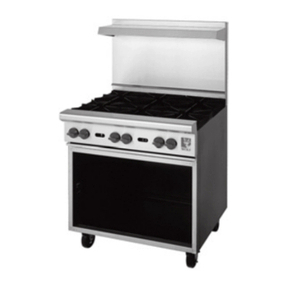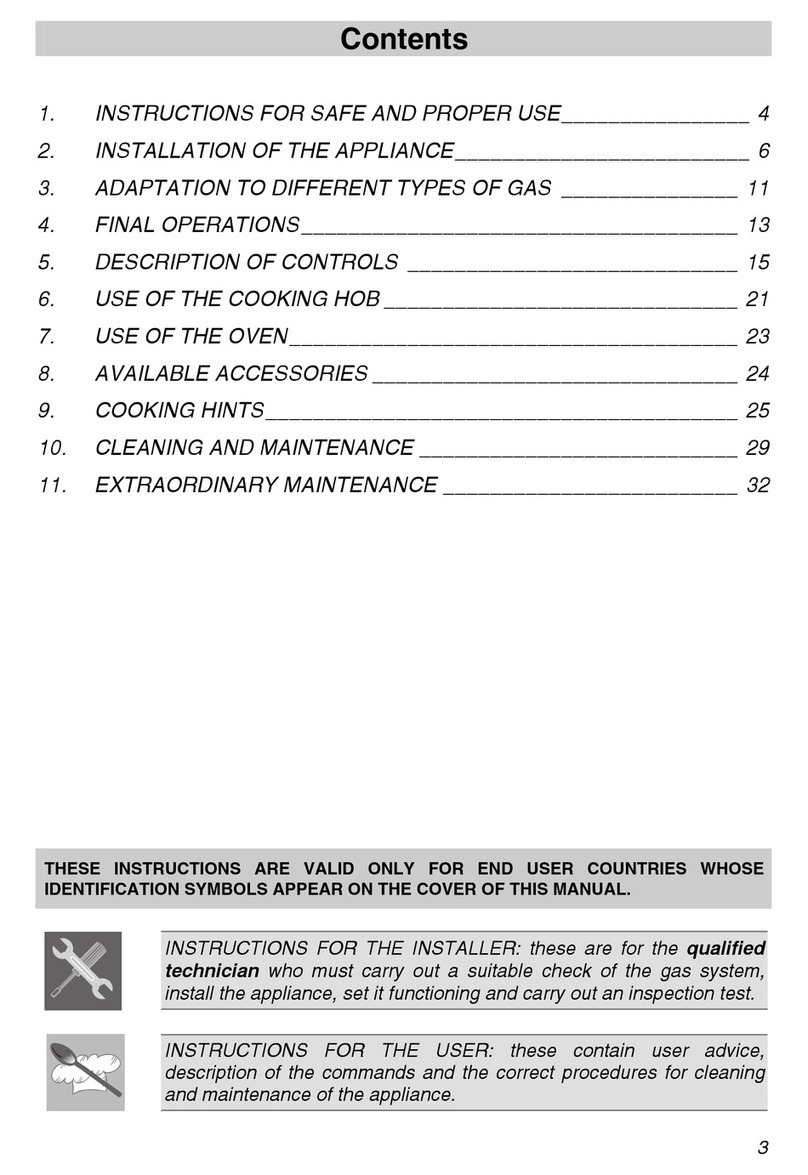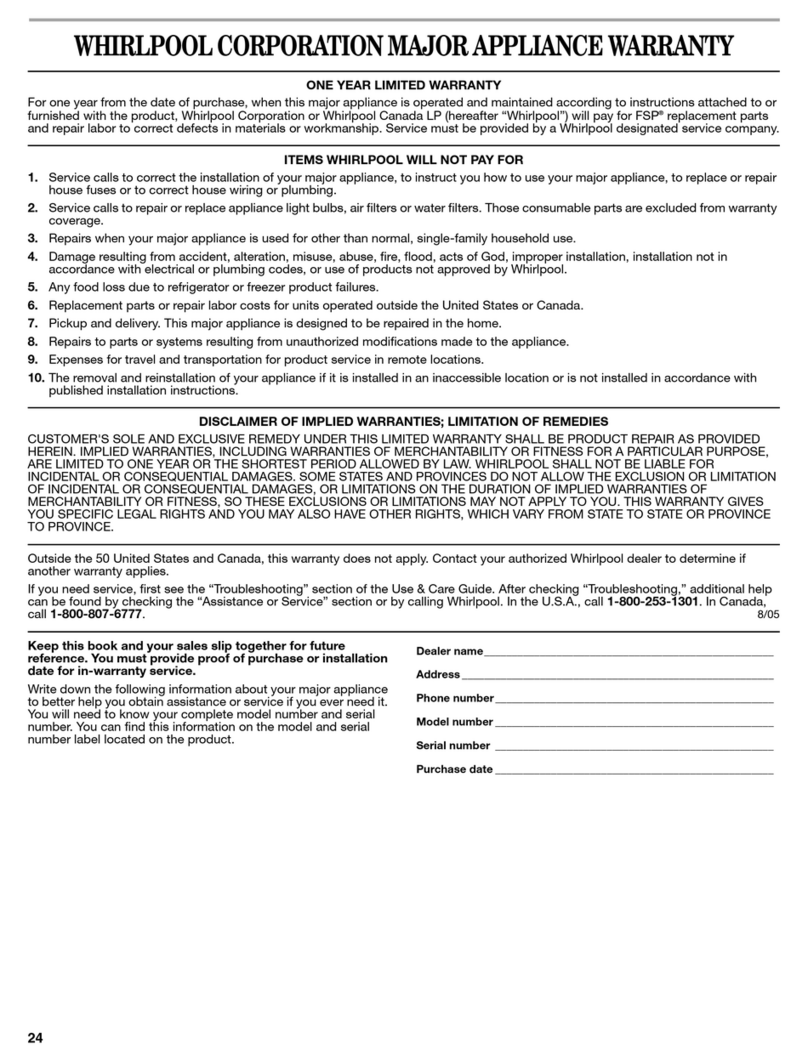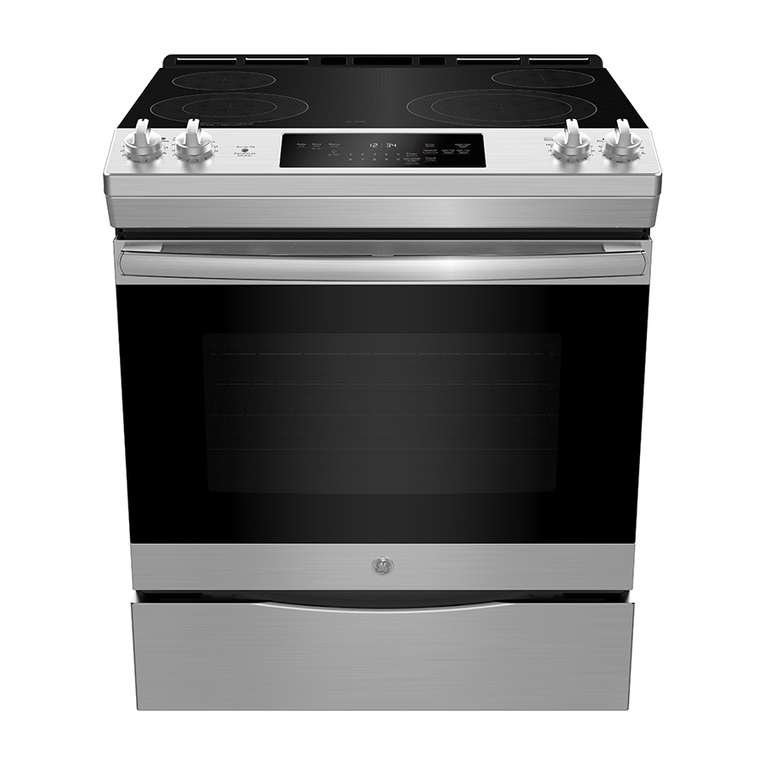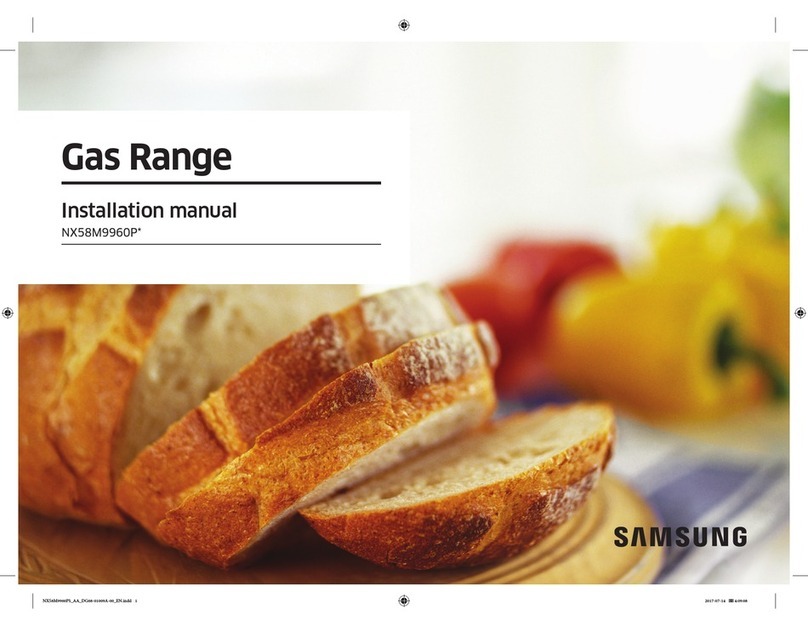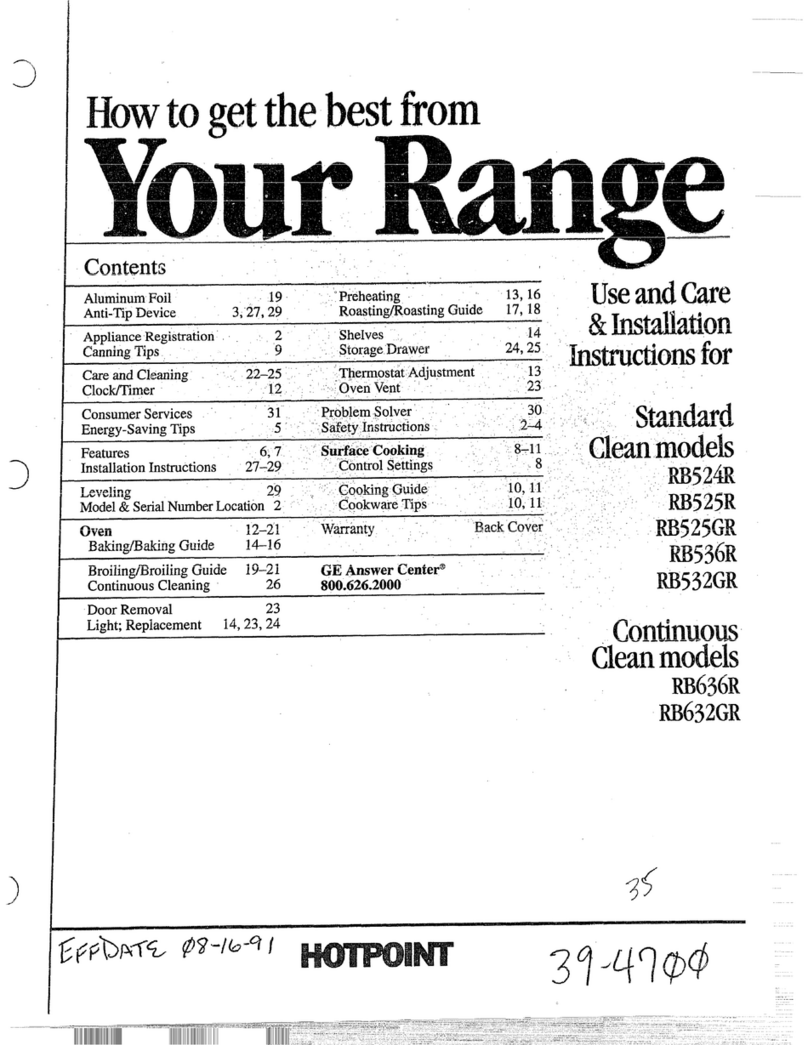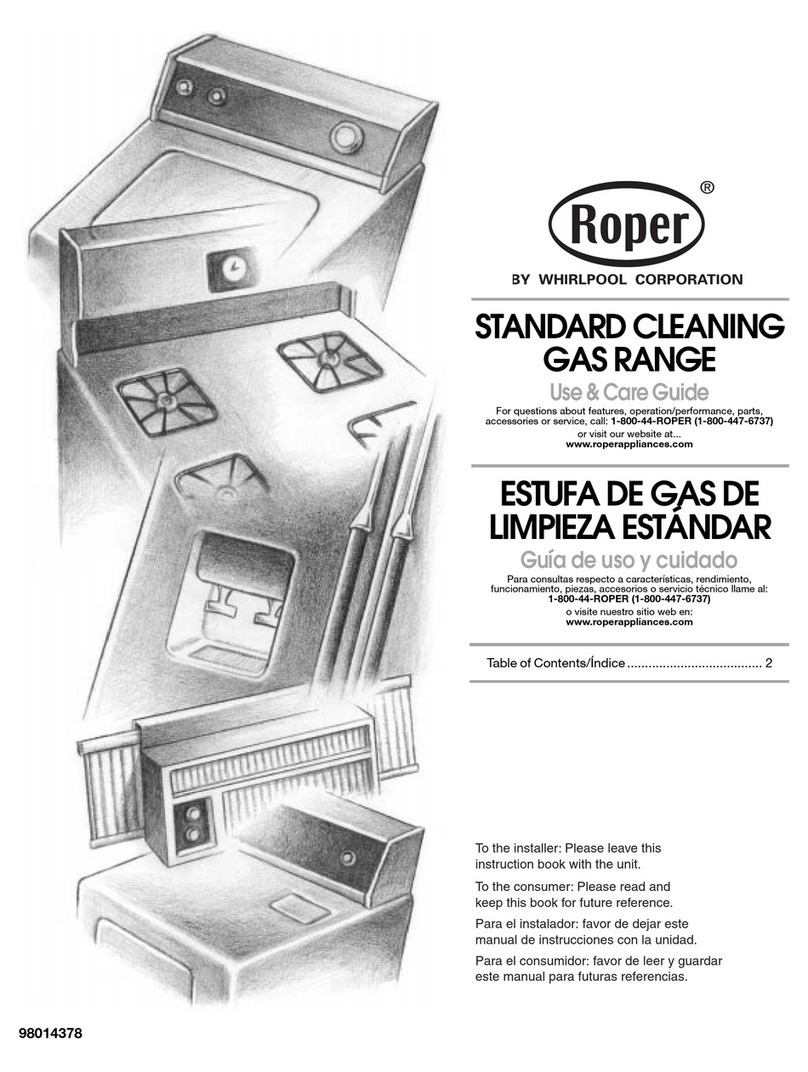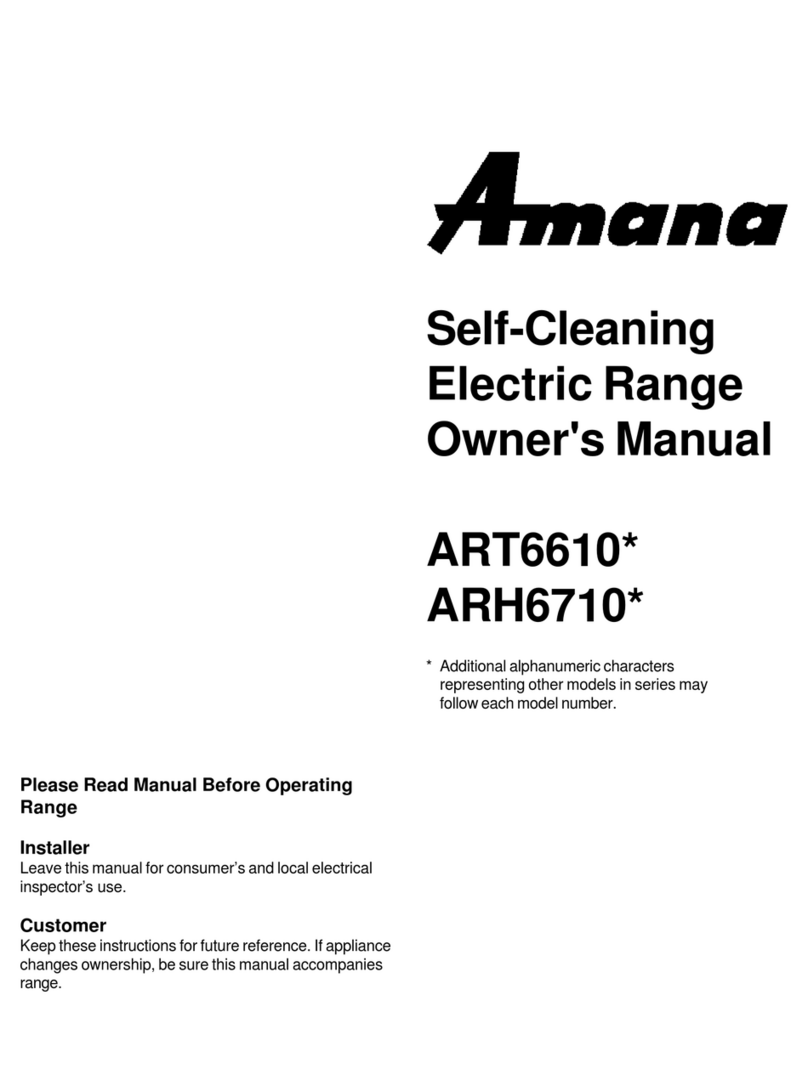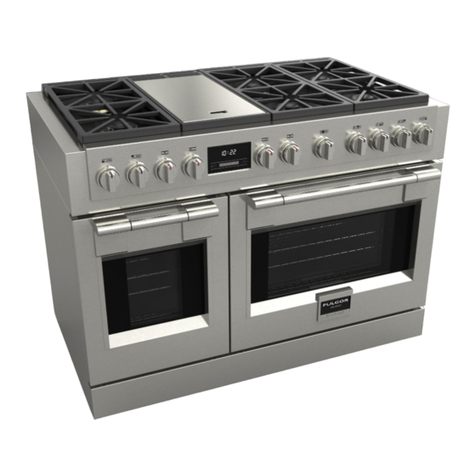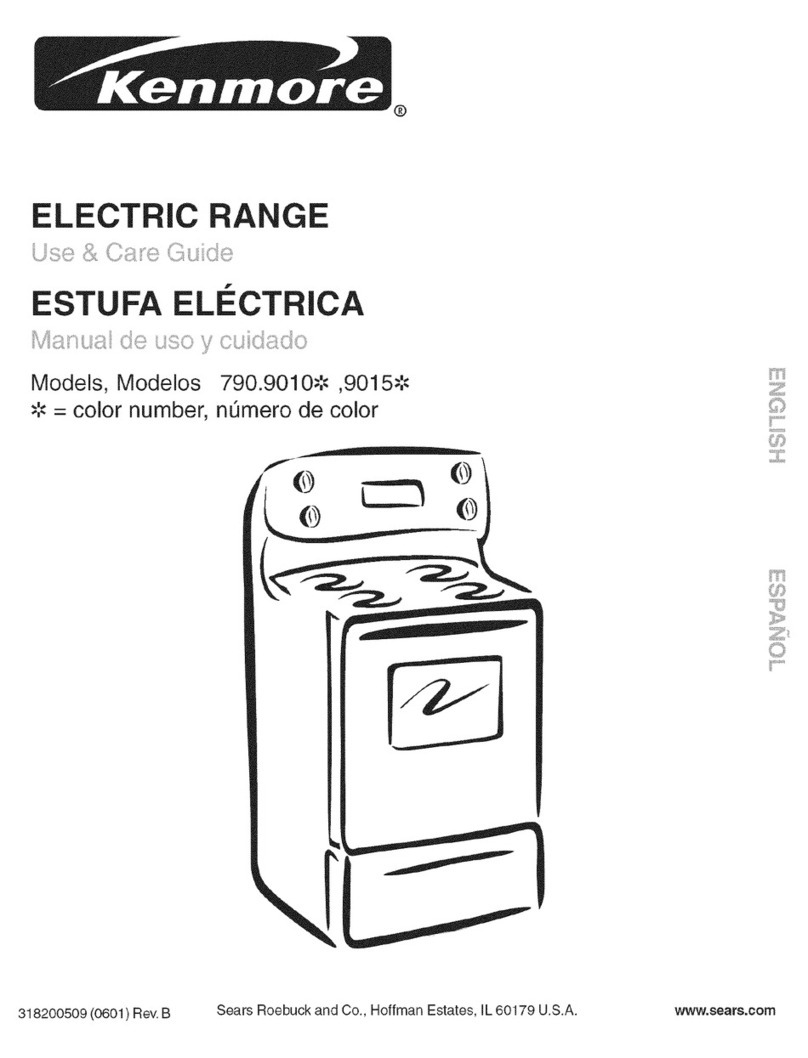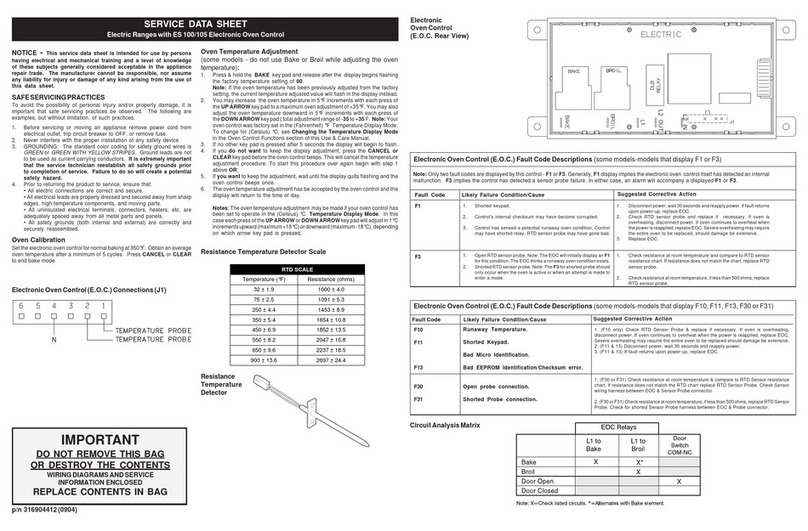9
GB
recautions and tips
This appliance has been designed and manufactured in
compliance with international safety standards.
The following warnings are pro ided for safety reasons and must
be read carefully.
General safety
These instructions are only valid for the
countries whose sybols appear in the anual
and on the serial nu ber plate.
The appliance was designed for domestic use inside the home
and is not intended for commercial or industrial use.
The appliance must not be installed outdoors, e en in co ered
areas. It is extremely dangerous to lea e the appliance
exposed to rain and storms.
Do not touch the appliance with bare feet or with wet or damp
hands and feet.
The appliance must be used by adults only for the preparation
of food, in accordance with the instructions pro ided in this
boo let.
The instruction boo let accompanies a class 1 (insulated) or
class 2 - subclass 1 (recessed between 2 cupboards)
appliance.
When the appliance is in use, the heating
ele ents and so e parts of the oven door
beco e extre ely hot. Make sure you don't
touch the and keep children well away.
Mae sure that the power supply cables of other electrical
appliances do not come into contact with the hot parts of the
o en.
The openings used for the entilation and dispersion of heat
must ne er be co ered.
Do not place unstable or misshapen pans on the electric
hotplates; this will help to a oid spills. Position them on the
hob with the handles turned towards the centre of the
appliance.
Always use o en glo es when placing coo ware in the o en or
when remo ing it.
Do not use flammable liquids (alcohol, petrol, etc...) near the
appliance while it is in use.
Do not place flammable material in the lower storage
compartment or in the o en itself. If the appliance is switched
on accidentally, it could catch fire.
Always ma e sure the nobs are in the 0 position when the
appliance is not in use.
When unplugging the appliance, always pull the plug from the
mains soc et; do not pull on the cable.
Ne er perform any cleaning or maintenance wor without
ha ing disconnected the appliance from the electricity mains.
If the appliance brea s down, under no circumstances should
you attempt to repair the appliance yourself. Repairs carried
out by inexperienced persons may cause injury or further
malfunctioning of the appliance. Contact Assistance.
Do not rest hea y objects on the open o en door.
The internal surfaces of the compartment (where present) may
become hot.
The glass ceramic hob is resistant to mechanical shoc s, but
it may crac (or e en brea ) if hit with a sharp object such as
a tool. If this happens, disconnect the appliance from the
electricity mains immediately and contact a Ser ice Centre.
If the surface of the hob is crac ed, switch off the appliance
to pre ent electric shoc s from occurring.
Remember that the temperature of the coo ing zones remains
relati ely high for at least thirty minutes after they ha e been
switched off.
Keep any object that could melt away from the hob, for
example plastic and aluminium objects, or products with a high
sugar content. Keep plastic or aluminium objects away from
the hob: if you forget them on surfaces that are still hot, they
may cause serious damage to the hob.
The appliance should not be operated by people (including
children) with reduced physical, sensory or mental capacities,
by inexperienced indi iduals or by anyone who is not familiar
with the product. These indi iduals should, at the ery least,
be super ised by someone who assumes responsibility for
their safety or recei e preliminary instructions relating to the
operation of the appliance.
If the coo er is placed on a pedestal, ta e the
necessary precautions to pre ent the same from sliding
off the pedestal itself.
Do not let children play with the appliance.
Disposal
When disposing of pac aging material: obser e local
legislation so that the pac aging may be reused.
The European Directi e 2002/96/EC relating to Waste Electrical
and Electronic Equipment (WEEE) states that household
appliances should not be disposed of using the normal solid
urban waste cycle. Exhausted appliances should be collected
separately in order to optimise the cost of re-using and
recycling the materials inside the machine, while pre enting
potential damage to the atmosphere and to public health. The
crossed-out dustbin is mar ed on all products to remind the
owner of their obligations regarding separated waste
collection.
Exhausted appliances may be collected by the public waste
collection ser ice, ta en to suitable collection areas in the
area or, if permitted by current national legislation, they may
be returned to the dealers as part of an exchange deal for a
new equi alent product.
All major manufacturers of household appliances participate in
the creation and organisation of systems for the collection
and disposal of old and disused appliances.
Respecting and conserving the
environment
You can help to reduce the pea load of the electricity supply
networ companies by using the o en in the hours between
late afternoon and the early hours of the morning.
Chec the door seals regularly and wipe them clean to ensure
they are free of debris so that they adhere properly to the
door, thus a oiding heat dispersion.
